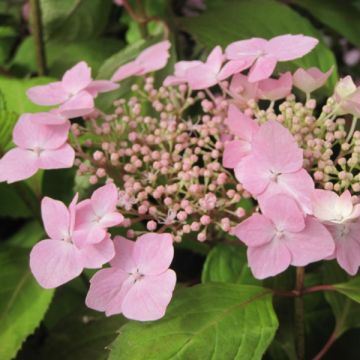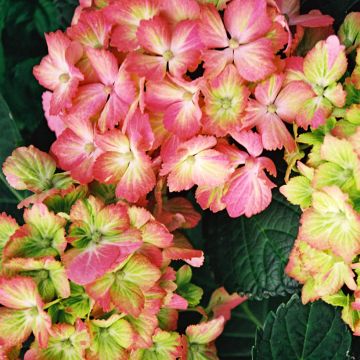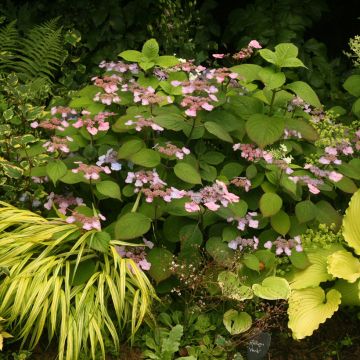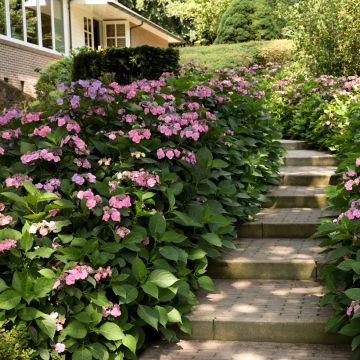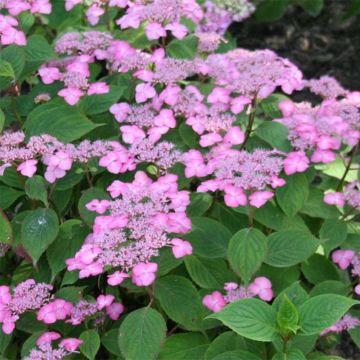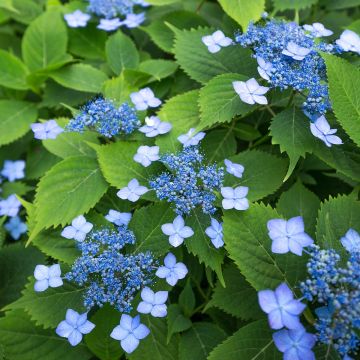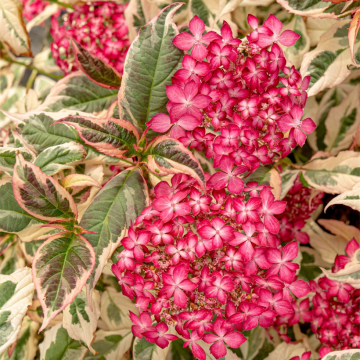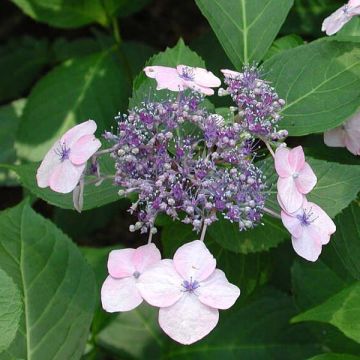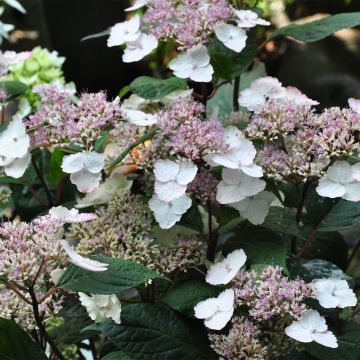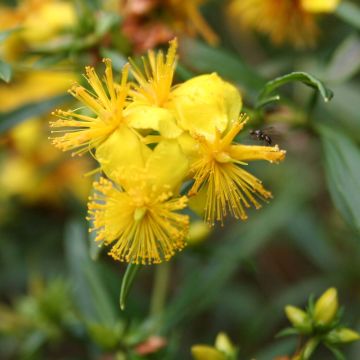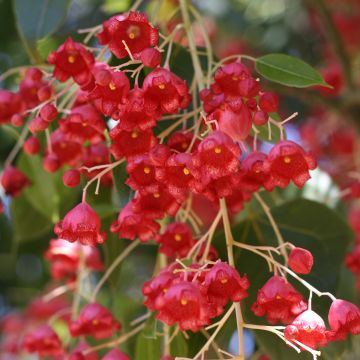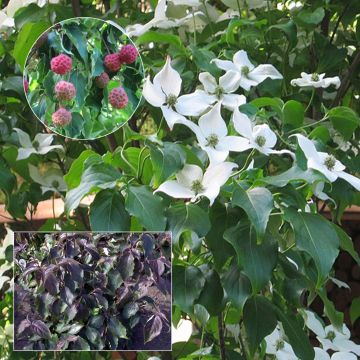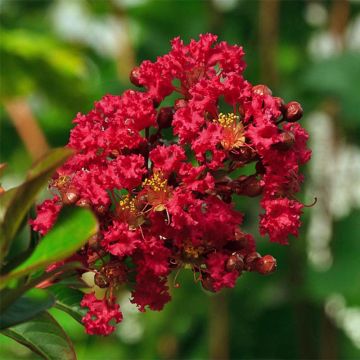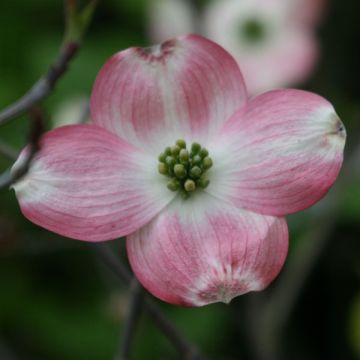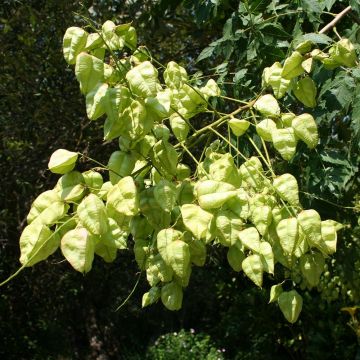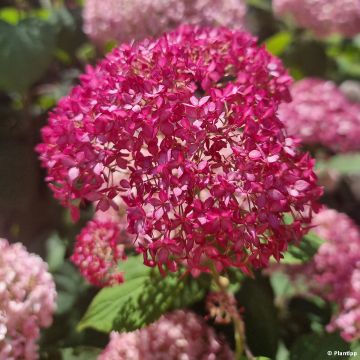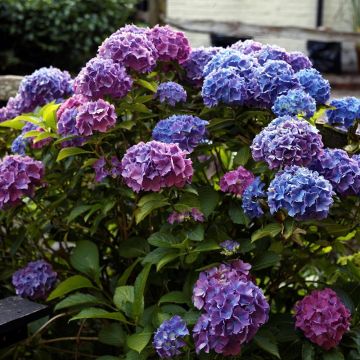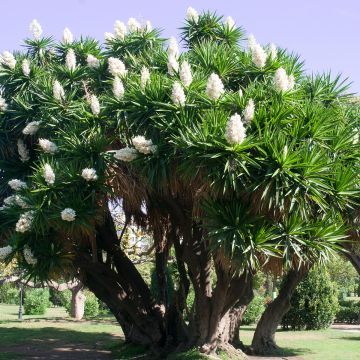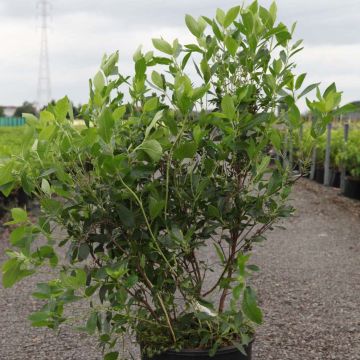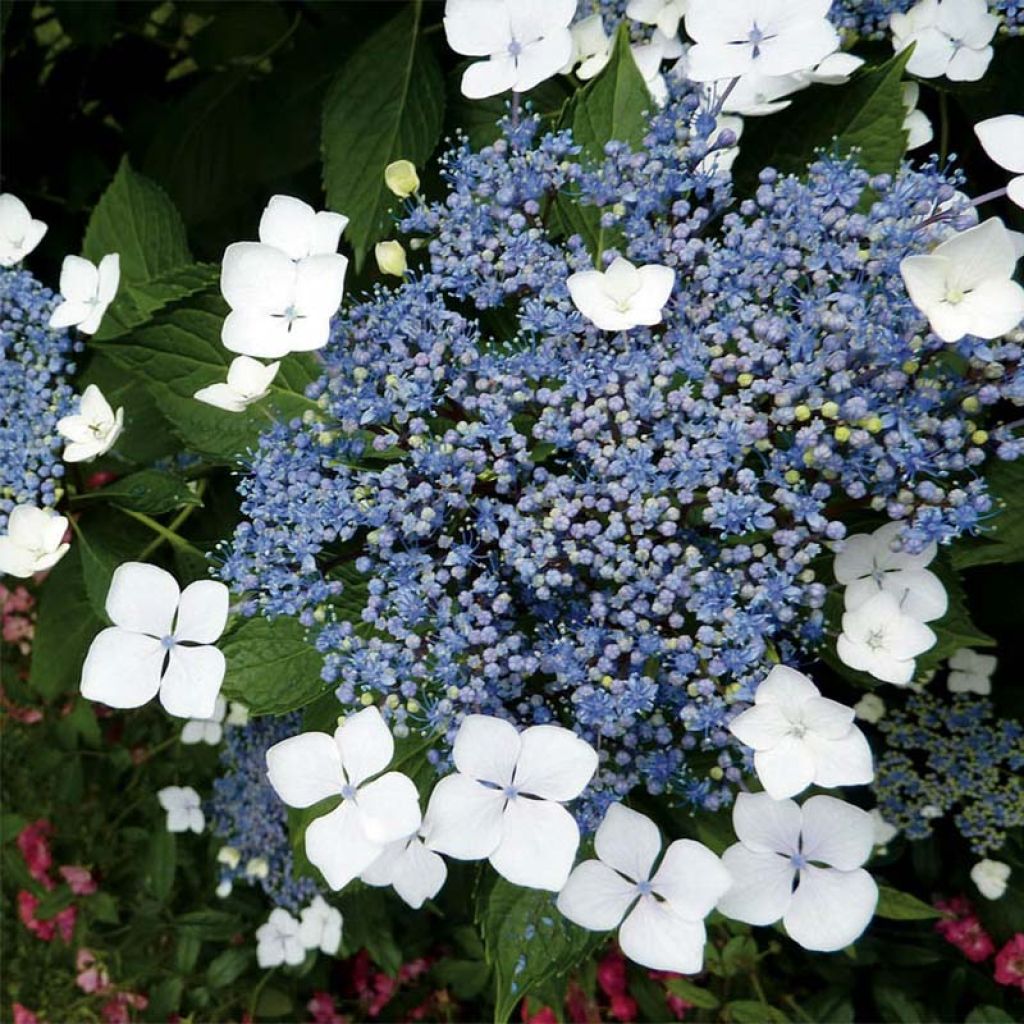

Hydrangea serrata Blue Bird - Mountain Hydrangea
Hydrangea serrata Blue Bird - Mountain Hydrangea
Hydrangea serrata Blue Bird
Mountain Hydrangea, Tea of Heaven
This item cannot be shipped to the selected country
Delivery charge from €5.90
More information
Schedule delivery date,
and select date in basket
This plant carries a 24 months recovery warranty
More information
We guarantee the quality of our plants for a full growing cycle, and will replace at our expense any plant that fails to recover under normal climatic and planting conditions.
From €5.90 for pickup delivery and €6.90 for home delivery
Express home delivery from €8.90.


Does this plant fit my garden?
Set up your Plantfit profile →
Description
Hydrangea serrata 'Bluebird' offers a particularly charming flowering and beautiful hardiness. Its corymbs appear from the beginning of summer and continue until autumn. In addition to their lovely shades, between pink and blue, they are also adorned with a crown of lace, formed by four-petaled flowers that surround a multitude of small buds in the centre. Its compact habit and dense foliage allow for a beautiful volume of one cubic metre, which will fill semi-shaded spaces in moist soils.
Originating from the mountains of Japan, Hydrangea serrata is robust, resistant, and not very frost-sensitive. It thrives in rainy, cool climates with little sun. Preferring partially or significantly shaded exposures, it will tolerate the sun if its roots remain cool. It appreciates acidic to neutral soils, preferably rich and humus-rich.
It has numerous ramified stems forming a rounded bush that can reach up to 1.2m in height and spread over 1m in width. Its deciduous foliage is dense and creates a beautiful backdrop for perennials placed in front of it. It consists of dark green, lanceolate leaves with dentate margins (hence the serrulate qualifier), marked by beautiful veins that are noticeably lighter. These leaves tend to turn red in the sun and become plum or violet. Above this ensemble, the flattened corymbs succeed each other throughout the summer, revealing subtle nuances between pink and blue, sometimes even starting from white and turning violet. These changing tones, depending on the nature of the soil, allow for varied pleasures in different gardens or even locations, thus bringing beautiful surprises. The effect is accentuated by the presence of two types of flowers. In the centre, multiple fertile flowers remain in tight buds. On the periphery, the sterile flowers, consisting of four petals arranged in a cross, emphasise this little dome with a pretty skirt. The contrast between the two is maintained by different shades: the periphery is often lighter than the centre.
'Bluebird' is not invasive and easily finds its place at the foot of a bare and poorly exposed wall. It also borders entrances and pathways and creates fluffy ensembles with all its cousins. Vary the sizes, colours, and flowers by choosing companions such as quercifolia or macrophylla. At the base, shade-loving perennials will complete the picture in blue tones: Brunneras, perennial Geraniums, or Heucheras to contrast with their colourful foliage.
Report an error about the product description
Hydrangea serrata Blue Bird - Mountain Hydrangea in pictures
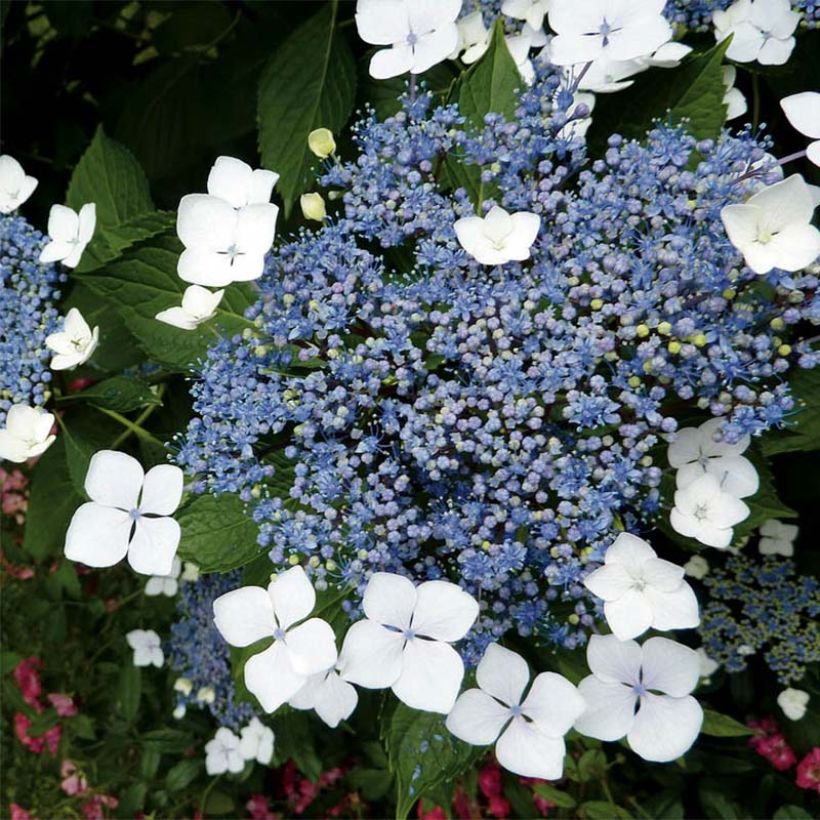

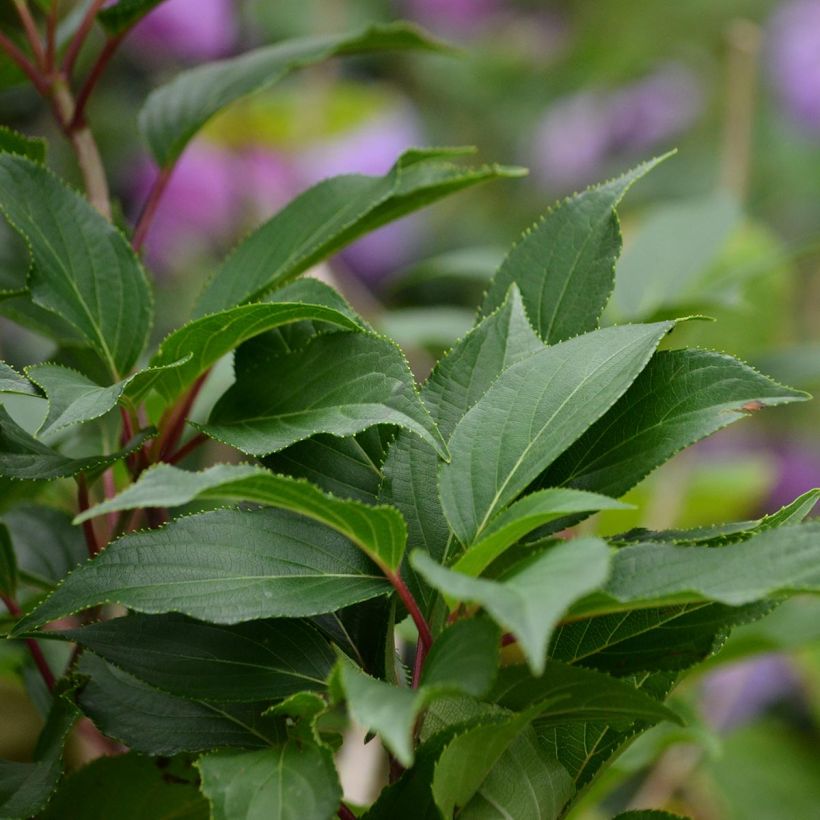

Plant habit
Flowering
Foliage
Botanical data
Hydrangea
serrata
Blue Bird
Hydrangeaceae
Mountain Hydrangea, Tea of Heaven
Cultivar or hybrid
Other Hydrangea serrata
Planting and care
Plant in spring or early autumn, preferably in a slightly shaded position, for example against an east-facing wall, or even north-facing. It is best to protect it from cold and drying winds.
It does not require ericaceous soil, but appreciates deep, moist but well-drained, fairly fertile soil, possibly enriched with a good base fertiliser before planting. If planting near a wall and the soil is dry, place the root ball at least 30cm to 40cm away from the base of the wall and incorporate a quantity of well-decomposed compost to better retain moisture in the soil. Very hardy, it can be planted in cold regions without fear.
As for pruning, remove faded flowers on the first bud or on the pair of buds directly below. Cut back to the base by a quarter or a third the oldest stems, when the plant is mature, to promote the formation of new shoots. Carry out this pruning every year during March if your climate is cold. If you have rather mild winters, you can proceed in late autumn by removing faded flowers.
Planting period
Intended location
Care
-
, onOrder confirmed
Reply from on Promesse de fleurs
Summer-flowering shrubs
Haven't found what you were looking for?
Hardiness is the lowest winter temperature a plant can endure without suffering serious damage or even dying. However, hardiness is affected by location (a sheltered area, such as a patio), protection (winter cover) and soil type (hardiness is improved by well-drained soil).

Photo Sharing Terms & Conditions
In order to encourage gardeners to interact and share their experiences, Promesse de fleurs offers various media enabling content to be uploaded onto its Site - in particular via the ‘Photo sharing’ module.
The User agrees to refrain from:
- Posting any content that is illegal, prejudicial, insulting, racist, inciteful to hatred, revisionist, contrary to public decency, that infringes on privacy or on the privacy rights of third parties, in particular the publicity rights of persons and goods, intellectual property rights, or the right to privacy.
- Submitting content on behalf of a third party;
- Impersonate the identity of a third party and/or publish any personal information about a third party;
In general, the User undertakes to refrain from any unethical behaviour.
All Content (in particular text, comments, files, images, photos, videos, creative works, etc.), which may be subject to property or intellectual property rights, image or other private rights, shall remain the property of the User, subject to the limited rights granted by the terms of the licence granted by Promesse de fleurs as stated below. Users are at liberty to publish or not to publish such Content on the Site, notably via the ‘Photo Sharing’ facility, and accept that this Content shall be made public and freely accessible, notably on the Internet.
Users further acknowledge, undertake to have ,and guarantee that they hold all necessary rights and permissions to publish such material on the Site, in particular with regard to the legislation in force pertaining to any privacy, property, intellectual property, image, or contractual rights, or rights of any other nature. By publishing such Content on the Site, Users acknowledge accepting full liability as publishers of the Content within the meaning of the law, and grant Promesse de fleurs, free of charge, an inclusive, worldwide licence for the said Content for the entire duration of its publication, including all reproduction, representation, up/downloading, displaying, performing, transmission, and storage rights.
Users also grant permission for their name to be linked to the Content and accept that this link may not always be made available.
By engaging in posting material, Users consent to their Content becoming automatically accessible on the Internet, in particular on other sites and/or blogs and/or web pages of the Promesse de fleurs site, including in particular social pages and the Promesse de fleurs catalogue.
Users may secure the removal of entrusted content free of charge by issuing a simple request via our contact form.
The flowering period indicated on our website applies to countries and regions located in USDA zone 8 (France, the United Kingdom, Ireland, the Netherlands, etc.)
It will vary according to where you live:
- In zones 9 to 10 (Italy, Spain, Greece, etc.), flowering will occur about 2 to 4 weeks earlier.
- In zones 6 to 7 (Germany, Poland, Slovenia, and lower mountainous regions), flowering will be delayed by 2 to 3 weeks.
- In zone 5 (Central Europe, Scandinavia), blooming will be delayed by 3 to 5 weeks.
In temperate climates, pruning of spring-flowering shrubs (forsythia, spireas, etc.) should be done just after flowering.
Pruning of summer-flowering shrubs (Indian Lilac, Perovskia, etc.) can be done in winter or spring.
In cold regions as well as with frost-sensitive plants, avoid pruning too early when severe frosts may still occur.
The planting period indicated on our website applies to countries and regions located in USDA zone 8 (France, United Kingdom, Ireland, Netherlands).
It will vary according to where you live:
- In Mediterranean zones (Marseille, Madrid, Milan, etc.), autumn and winter are the best planting periods.
- In continental zones (Strasbourg, Munich, Vienna, etc.), delay planting by 2 to 3 weeks in spring and bring it forward by 2 to 4 weeks in autumn.
- In mountainous regions (the Alps, Pyrenees, Carpathians, etc.), it is best to plant in late spring (May-June) or late summer (August-September).
The harvesting period indicated on our website applies to countries and regions in USDA zone 8 (France, England, Ireland, the Netherlands).
In colder areas (Scandinavia, Poland, Austria...) fruit and vegetable harvests are likely to be delayed by 3-4 weeks.
In warmer areas (Italy, Spain, Greece, etc.), harvesting will probably take place earlier, depending on weather conditions.
The sowing periods indicated on our website apply to countries and regions within USDA Zone 8 (France, UK, Ireland, Netherlands).
In colder areas (Scandinavia, Poland, Austria...), delay any outdoor sowing by 3-4 weeks, or sow under glass.
In warmer climes (Italy, Spain, Greece, etc.), bring outdoor sowing forward by a few weeks.

































